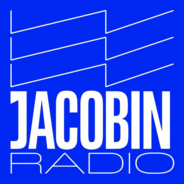The “professional managerial class” has become a staple of political debate on the Left.
In this episode of Confronting Capitalism, Vivek Chibber explains why the “PMC” is better understood as a heterogeneous layer within capitalism rather than a distinct class, how and why the middle strata have expanded, and what has pushed so many professionals toward anti-capitalist politics. While skeptical of the PMC as a precise analytical category, Chibber argues that the term still captures something real about one of the most politically influential groups in modern America.
The latest issue of Catalyst is out, and you can subscribe for just $20 using the link below:
https://catalyst-journal.com/subscribe/?code=CONFRONTINGCAPITALISM
Confronting Capitalism with Vivek Chibber is produced by Catalyst: A Journal of Theory and Strategy, and published by Jacobin. Music by Zonkey.

Politik
Jacobin Radio Folgen
News, politics, history and more from Jacobin. Featuring The Dig, Long Reads, Confronting Capitalism, Behind the News, Jacobin Radio with Suzi Weissman, and occasional specials.
Folgen von Jacobin Radio
1778 Folgen
-
Folge vom 13.08.2025Confronting Capitalism: The PMC Isn’t Going Away
-
Folge vom 11.08.2025Behind the News: The “Anti-Woke” Culture War w/ Jodi DeanJodi Dean, author of a recent article about the “classism of defeat,” makes a case for why going anti-woke is very wrong. Emily Jashinsky analyzes Marjorie Taylor Greene’s use of the word “genocide” and other curious developments on the Right. Behind the News, hosted by Doug Henwood, covers the worlds of economics and politics and their complex interactions, from the local to the global. Find the archive online: https://www.leftbusinessobserver.com/radio.html
-
Folge vom 08.08.2025Long Reads: Trump’s Gaza Famine w/ Akbar Shahid AhmedGaza is experiencing a man-made famine as Israel blocks the supply of almost all humanitarian aid. By the start of August, Israeli soldiers had killed nearly 1,400 Palestinians as they were looking for food. Most of the killings happened near sites managed by the so-called Gaza Humanitarian Foundation, the GHF. The GHF was sponsored by the Trump administration earlier this year to replace legitimate aid organizations with a track record of operating in Palestine. For this week’s episode, we spoke to Akbar Shahid Ahmed of the Huffington Post about the famine and recent massacres in Gaza. Akbar has been a guest on the show several times before. He’s currently working on his book about the Biden administration and Gaza, which will be published next year. Find Akbar’s previous interviews with Long Reads here: https://jacobin.com/author/akbar-shahid-ahmed Long Reads is a Jacobin podcast looking in-depth at political topics and thinkers, both contemporary and historical, with the magazine’s longform writers. Hosted by features editor Daniel Finn. Produced by Conor Gillies with music by Knxwledge.
-
Folge vom 05.08.2025The Dig: Chicago’s Left ExperimentFeaturing Alex Han, Asha Ransby-Sporn, and alderwoman Jeanette Taylor on Chicago’s left political experiment. In the wake of Zohran’s remarkable victory in New York, organizers all over the country are taking a close look at Chicago under Mayor Brandon Johnson. A Chicago Teachers Union leader elected in 2023, Johnson’s win was the culmination of years of militant labor and social movement struggle. But while much has been achieved, Johnson and his allies have also suffered many defeats — and the mayor’s approval ratings are alarmingly low. In this episode, three long-time local organizers, including a socialist member of city council, analyze the state of the Left’s bid for governing power and what broader lessons it holds. Recorded live in Chicago. Dig 500th Episode Party November 7 in Brooklyn! Emceed by Brace and Liz from TrueAnon. Free for Patreon supporters $10/mo and up. Get your tickets here littlefieldnyc.com/event/?wfea_eb_id=1549778040839 Support The Dig at Patreon.com/TheDig Get 50% off Coercion: Surviving and Resisting Abortion Bans and other books in your first order from plutobooks.com with code ‘DIG50′. Buy Fake Work at Haymarketbooks.com The Dig goes deep into politics everywhere, from labor struggles and political economy to imperialism and immigration. Hosted by Daniel Denvir.
